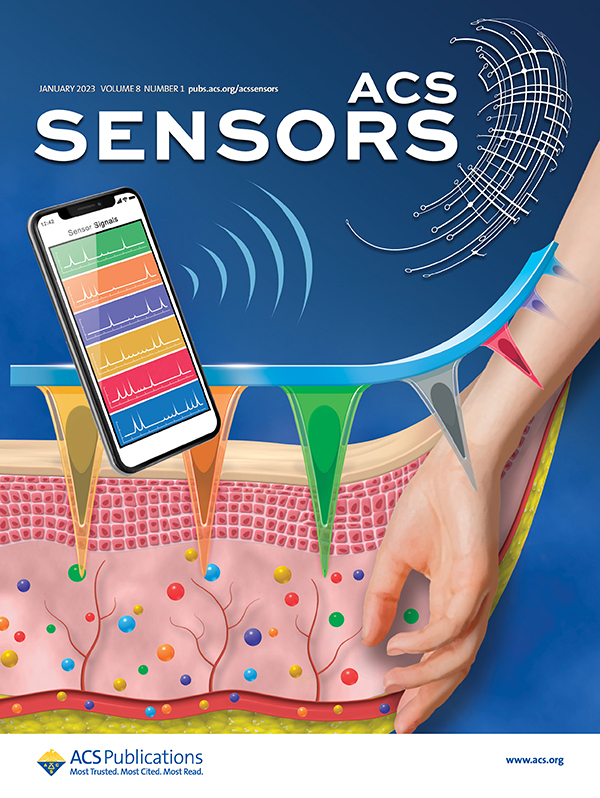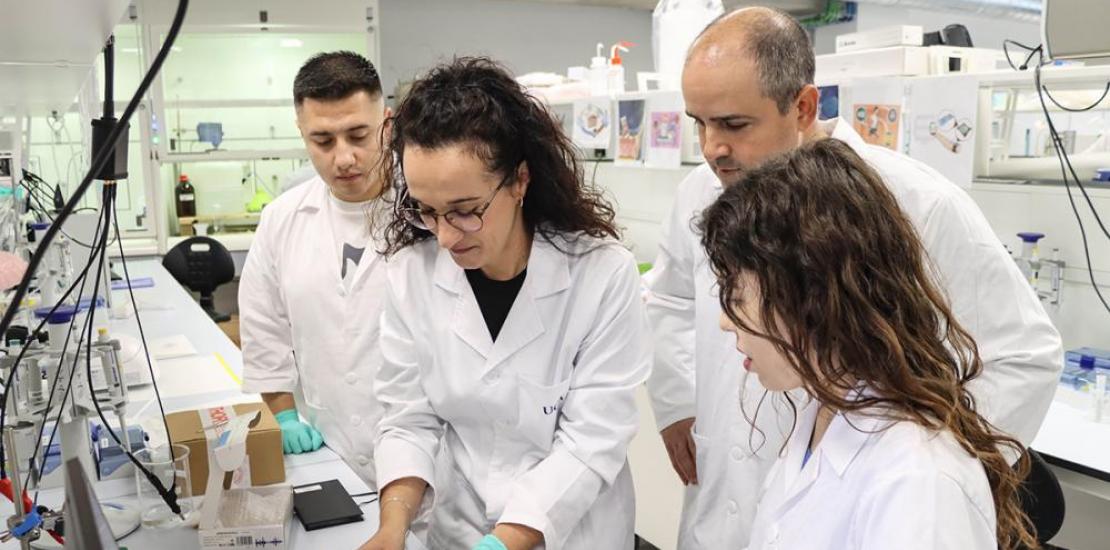UCAM-SENS develops wireless patch to monitor patients in real time
ACS Sensors, one of the best journals in the world specialised in analytical chemistry and sensors, features the research of María Cuartero and Gastón Crespo on its cover. They are shown together with their talented team at UCAM HiTech, where they have created a wireless patch that transmits permanent information on the levels of pH, sodium, potassium, calcium, lithium and chloride in the interstitial fluid.
Preventing diseases associated with sodium and chloride levels such as hypertension and cystic fibrosis, detecting infections by tracking changes in pH or determining the ideal dose of lithium for Alzheimer's patients are some of the many functions of the wireless patch created by UCAM researchers María Cuartero and Gastón Crespo. Thanks to the information provided by this device's sensors, in the relatively near future healthcare workers will be able to know how a patient is doing at any given moment in real time and with high precision.
ACS Sensors, a prestigious scientific journal, has considered the scientific article on the design, development and validation of this patch, made up of microneedles containing chemical sensors, to be a high impact publication and has placed it on the cover of the January issue.
Measuring via the skin, these patches will be able to characterise a large number of components in the interstitial fluid, wirelessly monitoring the condition of people or animals in real time. Another advantage of this device is the painless application of the patches due to its cosmetic-like microneedles, allowing the results to be easily interpreted by the health care team. The researchers agree that ‘using [this device] could, in the near future, replace the current (much more invasive) blood sampling to observe and monitor certain patient parameters in real time’.

UCAM Vice-Rector of Research, Estrella Núñez, said: ‘we are proud that researchers of the stature of María Cuartero and Gastón Crespo have come to the Region of Murcia to join UCAM and develop their research by creating UCAM-SENS. This publication currently featured on the cover of the ACS Sensors journal is very important in terms of the quality science produced in this region and has an immediate application with an impact on society as a whole’.
This technology is being verified by creating a validation protocol, which is being thoroughly researched by the UCAM-SENS team in the UCAM HiTech laboratories in collaboration with the KTH University in Sweden. So far, in vitro and in vivo validation tests have been successfully performed by extracting interstitial fluid and comparing it with the blood composition of the animals used in the study. Clinical trials will start soon in order to understand and validate its use in humans.




